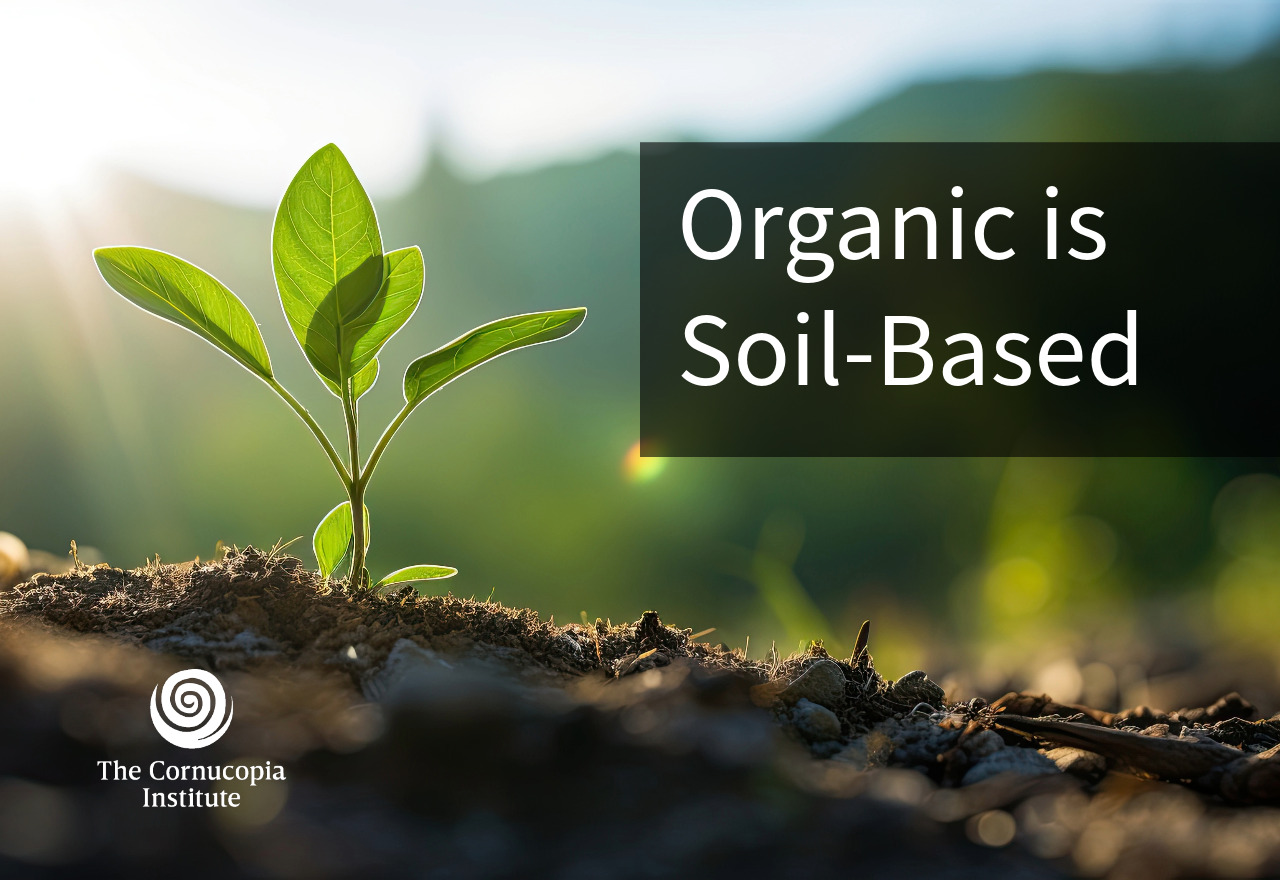Have you ever picked up an organic tomato in the produce section of a store and wondered whether it was grown in soil? Organic rules and regulations make it clear that soil is a necessary part of organic systems, but disagreements among organic certifiers have resulted in a split that many organic consumers are unaware of.
Some certified organic produce available for purchase today is grown hydroponically. The term “hydroponics” can cover many types of production, but they all have one unifying feature: they are soilless systems.
Organic production is based on the concept of resource cycling, where soil health is fostered to provide nutrition to the plants. Soilless systems take a different approach by applying concentrated nutrient formulas directly to the plants. Because the plants rely entirely on this formula, hydroponic systems start to resemble conventional systems, where plants are dependent on inputs outside the holistic relationships found in healthy soils.
Recently a group of organic certifying organizations have taken a stand against soilless organic production. Their Organic Agriculture is Soil-Based: Position Statement is an important step in urging the National Organic Program to act.
The upcoming National Organic Standards Board meeting will provide a valuable opportunity for organic consumers, farmers, and ranchers to be heard on hydroponics. By submitting a written comment (Docket # AMS-NOP-23-0026-0002), you can tell federal regulators that nurturing the soil is a vital part of the organic system.
The deadline to submit written comments is 11:59 pm Eastern on September 28, 2023.
Need talking points? Here are some suggestions:
- As a [consumer, farmer, etc.] I expect organic produce to be soil grown because it is one of the many benefits to organic food. Soil-based organic production results in higher nutritional value and a better environmental impact.
- Hydroponics being allowed under the organic label is an unintended result and does not fit the existing rules. There is no consistent standard for organics while hydroponic production exists outside the requirements for soil.
- Ask the NOP to put a moratorium on certification of new hydroponic operations until this issue can be resolved.
- Highlight your local soil-based organic producers and what you value about their products (cycling nutrients, improving climate resilience, protecting ecosystem services like biodiversity, etc.).
Can you help Cornucopia measure the collective impact of its supporters? Let us know if you’re planning on commenting by checking the box below.
Check this box and click submit:


